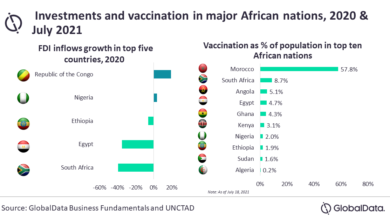
Latest economic conditions survey from ACCA and IMA paints a picture of a steady but weak global economy
The Q4 Global Economic Conditions Survey (GECS) shows signs of steadying, however, many indicators remain weaker than a year ago. The good news is that the GECS Confidence Index bounced slightly for the second consecutive quarter, perhaps reflecting hopes that the worst of the central bank tightening might soon be over and that China might successfully relax its zero-COVID restrictions.
Even so, the Confidence Index remains below its median reading for the period since 2012. There is not much positive news from the other three economic indicators – new orders, capital expenditure (CapEx), and employment. CapEx picked up marginally but remains below the median of the same period; new orders and employment showed a further modest deterioration.
Taken as a whole, the results are consistent with a subdued macro-economic outlook. But the good news is that they do not appear yet to be at levels consistent with an outright global recession in 2023 – even though this is the base case scenario for many economic forecasters.
A good cross-check is provided by the two GECS “Fear” indices, which reflect respondents’ concerns that customers and/or suppliers may go out of business. Reassuringly, these were little changed from the 2022 Q3 survey, despite the sharp rise in borrowing costs and the prospect of negative corporate-earnings growth in 2023.
Jamie Lyon, head of skills, sectors and technology at ACCA, said: “What stands out is the improvement in confidence in both Western Europe and North America. The swing in the former more than reverses the fall that we saw in 2022 Q3, when worries about the impact of higher energy prices were at their most intense.
“The improvement in confidence probably reflects hopes that the Russia–Ukraine conflict can be contained, and that there will be sufficient natural gas to see Europe through what now looks increasingly likely to be a mild winter. Looking to the rest of the world and emerging markets however, 2023 could still prove to be a challenging time.’”
Loreal Jiles, vice president of research and thought leadership at IMA, said: “Global confidence has edged up for the second consecutive quarter as cost concerns have eased and with worries about accessing finance and securing prompt payment having not gotten any worse.
“This is something of a surprise given the global rapid tightening of monetary policy by the world’s central banks. The past 12 months have seen the most aggressive tightening of policy in more than 40 years, in pace, scale and breadth. It is strange that this has not yet had a material impact on financing conditions and corporate cash flows. But monetary policy works with long and variable lags, which suggests that this may become more of a problem later in 2023.”
The GECS Confidence Index for Africa fell back after Russia invaded Ukraine, but confidence has steadied over Q3 and Q4 2022 in line with the average since 2012. Bearing in mind the lack of homogeneity in the region, the GECS macro-economic indicators paint a mixed picture, with new orders close to record highs at the same time as employment and capital expenditure remain subdued. The sharp rise in energy and food prices hurt the region in 2022 but those headwinds may start to ease as we head into 2023. On the other hand, many African countries have dollar borrowing that has become a greater burden as US interest rates have risen.
economy faces three major uncertainties.
First, have central banks overdone or underdone the amount of tightening that they have imposed?
Second, can China engineer a smooth exit from zero-COVID without additional lockdowns?
And third, will wage pressures ease without a major weakening of the employment market?
One of the unresolved questions from the COVID crisis is whether the combination of early retirement, prolonged ill health, and the move to hybrid working has profoundly altered the balance of power between employers and employees. These changed employment-market dynamics may make it harder for central banks to bring core inflation back to their 2% targets.
The answer to each of these questions will become much clearer as 2023 progresses.
Read the full GECS report
ACCA may monitor and read all e-mails as it is presumed that they are sent or received in connection with the business of ACCA or for business use only. ACCA also monitors e-mails for security reasons to ensure that no unauthorised disclosure of ACCAs confidential information is passed via the e-mail system. This e-mail and any attachments are confidential. It is intended for the recipient only. If you are not the intended recipient, any use, disclosure, distribution, printing or copying of this e-mail is unauthorised. If you have received this e-mail in error, please immediately notify the sender by replying to this e-mail and delete the e-mail from your computer. The contents of any attachment to this e-mail may contain software viruses, which could damage your own computer system. While ACCA has taken every reasonable precaution to minimise this risk, we cannot accept liability for any damage which you sustain as a result of software viruses. You should carry out your own virus checks before opening the attachment.




